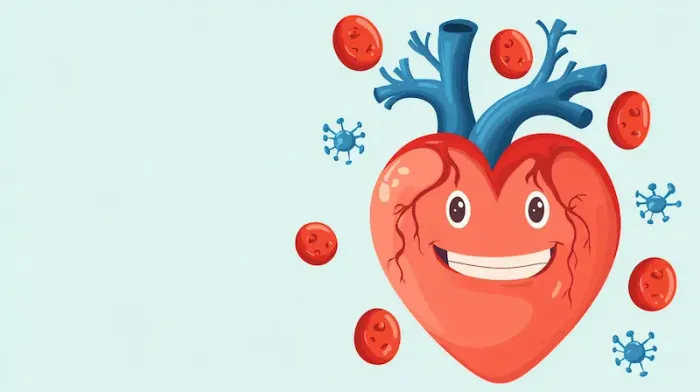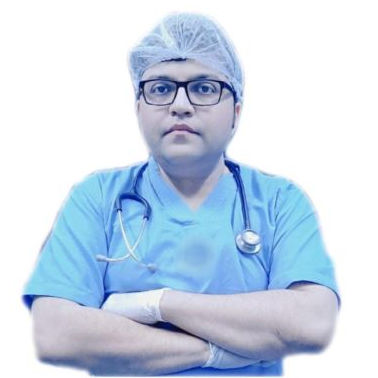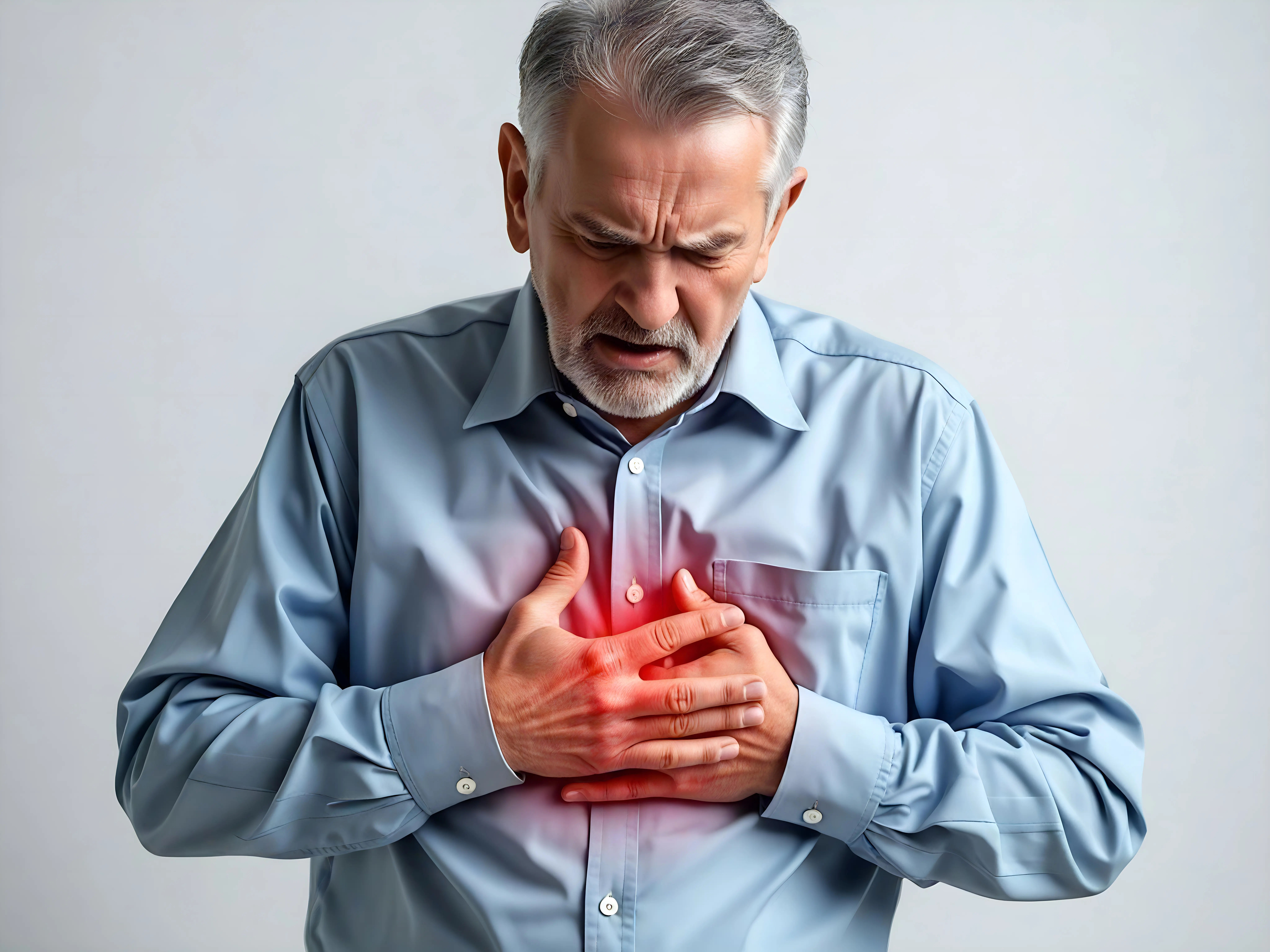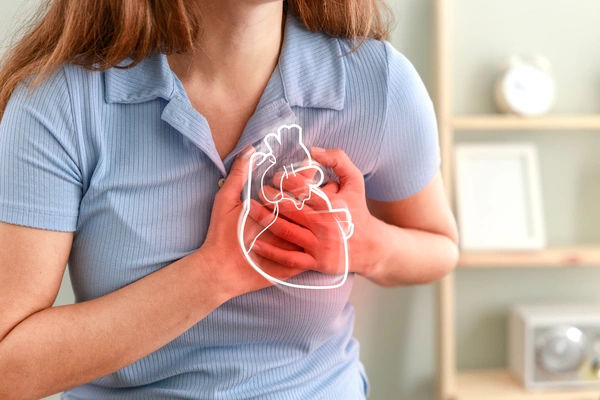Guide to Heart Disease Children
Discover the essential guide to heart disease in children. Learn about causes, symptoms, and treatment options for pediatric heart conditions, and find helpful resources to support your family.

Written by Dr. Mohammed Kamran
Reviewed by Dr. Shaik Abdul Kalam MD (Physician)
Last updated on 13th Jan, 2026

Introduction
Hearing the words "heart disease" and "your child" in the same sentence is a moment no parent is prepared for. While we often think of heart conditions as an adult health issue, children can be affected too. Pediatric heart disease is a broad term encompassing various structural and functional problems of the heart. This guide aims to demystify this complex topic, providing parents and caregivers with a clear understanding of the types, symptoms, causes, and modern treatment options available. Our goal is to replace fear with knowledge and hope, empowering you to advocate for your child's health. We'll walk you through everything from recognizing early warning signs to navigating life with a heart condition, highlighting the remarkable advances that allow most children to lead full, active lives.
Understanding Pediatric Heart Disease: It's Not Just an Adult Problem
Childhood heart disease is fundamentally different from adult coronary artery disease. It’s primarily categorized into two types: congenital and acquired. Understanding this distinction is the first step in grasping your child’s specific condition.
Congenital Heart Defects (CHD): The Most Common Type
A congenital heart defect (CHD) is a structural problem with the heart present at birth. It is the most common type of birth defect, affecting nearly 1 in 100 babies born each year. These defects develop in the early stages of pregnancy when the fetal heart is forming. They can range from simple issues, like a small hole in the heart, to very complex malformations, like missing chambers or valves. Common examples include Ventricular Septal Defect (VSD - a hole in the wall between the heart's lower chambers) and Tetralogy of Fallot (a combination of four defects).
Acquired Heart Diseases: Conditions That Develop Later
Acquired heart diseases are conditions that develop after birth in a heart that was initially normal. These are less common than CHD but are equally important. They include diseases like Kawasaki disease (which causes inflammation in blood vessels, including coronary arteries), rheumatic heart disease (a complication of untreated strep throat that can damage heart valves), and cardiomyopathies (diseases of the heart muscle itself). Myocarditis, an inflammation of the heart muscle often caused by viral infections, is another example of an acquired condition.
Consult Top Specialists
Recognizing the Signs: Symptoms of Heart Problems in Children
Symptoms can vary dramatically based on the child's age and the specific heart condition. What might be noticeable in a newborn could be entirely different in a teenager.
Symptoms in Babies and Infants
Infants cannot tell you how they feel, so observing physical signs is crucial. Key symptoms include:
• Cyanosis: A bluish tint to the skin, lips, and fingernails, especially during feeding or crying. This indicates low oxygen levels in the blood.
• Rapid or Difficult Breathing: Tachypnea (fast breathing) or seeing the ribs with each breath (retractions).
• Poor Feeding: Becoming sweaty or tired during feeds, taking a long time to finish a bottle, and consequently poor weight gain.
• Tiring Easily: Falling asleep shortly after starting a feed.
• Heart Murmur: An unusual whooshing sound heard by a doctor through a stethoscope (though many murmurs are "innocent" and harmless).
Symptoms in Toddlers, Children, and Teens
In older children, symptoms might be more subtle and mistaken for other issues:
• Easily Short of Breath: Getting winded much quicker than peers during play or exercise.
• Fatigue: Unusual tiredness and lack of energy for normal activities.
• Chest Pain or Palpitations: Complaining of their heart "racing," "fluttering," or hurting.
• Fainting (Syncope): Fainting during physical activity can be a red flag.
• Swelling: In the abdomen, legs, ankles, feet, or around the eyes.
What Causes Heart Disease in Children?
Pinpointing an exact cause is often challenging, but research has identified several genetic and environmental factors.
Causes of Congenital Heart Defects
Most CHDs have no known cause, but some are linked to:
• Genetic Factors: Chromosomal abnormalities like Down syndrome are strongly associated with certain heart defects.
• Maternal Health and Environment: If the mother has uncontrolled diabetes, rubella (German measles) during pregnancy, or uses certain medications, alcohol, or tobacco, the risk can increase.
• Genetics: A family history of CHD can slightly increase the risk for future children.
### Causes and Risk Factors for Acquired Heart Conditions
These are linked to other illnesses or factors:
• Infections: Viruses can lead to myocarditis; streptococcal bacteria can trigger rheumatic fever.
• Other Illnesses: Kawasaki disease is a leading cause of acquired heart disease in developed nations, though its cause is unknown.
• Lifestyle Factors: While rare in children, obesity, hypertension, and severe diabetes can contribute to heart strain, highlighting the importance of a heart-healthy diet for kids from a young age.
How is Pediatric Heart Disease Diagnosed?
Early diagnosis is critical. Sometimes, defects are detected before birth via a fetal echocardiogram. After birth, diagnosis often begins with a routine check-up.
Common Screening and Diagnostic Tests
• Pulse Oximetry: A simple, painless test that clips to a baby's foot to measure blood oxygen levels. It's a standard newborn screening for critical CHD.
• Electrocardiogram (EKG/ECG): Records the heart's electrical activity to check for rhythm problems.
• Echocardiogram: An ultrasound of the heart. This is the primary tool for diagnosing CHD, as it provides a detailed moving picture of the heart's structure and function.
• Cardiac Catheterization: A thin tube is threaded through a blood vessel to the heart. This can provide detailed pressure measurements, inject dye for clear X-rays (angiograms), and even be used to treat some defects.
Treatment Options for Children with Heart Conditions
The treatment plan is highly individualized. The good news is that modern medicine offers more options than ever before.
Medications for Managing Heart Disease
Many children are successfully managed with drugs that help the heart work more efficiently. These can include diuretics (to remove excess fluid), digoxin (to strengthen heart contractions), ACE inhibitors (to lower blood pressure and reduce strain), and anti-arrhythmics (to control irregular heartbeats).
Cardiac Catheterization: Minimally Invasive Procedures
This isn't just for diagnosis. Interventional cardiologists can now use catheters to repair certain defects. For example, they can plug a hole like an ASD or PDA with a device, or open a narrowed valve with a balloon. These procedures avoid open-heart surgery, leading to shorter hospital stays and faster recovery.
Heart Surgery for Children: Repairs and Transplants
For complex defects, open-heart surgery is necessary. Pediatric cardiac surgeons are skilled at repairing malformed valves, closing large holes, and even reconstructing parts of the heart. These procedures are often done in infancy. In the most severe cases where the heart cannot be repaired, a heart transplant may be considered.
Living with a Heart Condition: Long-Term Management and Care
A diagnosis of heart disease is often the start of a lifelong journey, but it's one filled with support and normalcy.
The Importance of Regular Cardiology Check-ups
Consistent follow-up with a pediatric cardiologist is non-negotiable. Even after successful repair, children need monitoring throughout their lives to check heart function and address any new issues that may arise as they grow.
Nutrition, Exercise, and Activity Guidelines
Most children with heart disease can and should be active. The cardiologist will provide specific guidelines on sports and activities. Nutrition is also key; a balanced diet helps maintain a healthy weight, reducing unnecessary strain on the heart.
Supporting Your Child's Emotional and Social Well-being
Beyond physical health, it's vital to address the emotional impact. Encourage open communication. Connect with support groups for families dealing with CHD. Treat your child as normally as possible, fostering independence and resilience. If you notice signs of anxiety or depression related to their condition, consult a child psychologist or therapist online with Apollo24|7 for further evaluation.
The Future is Bright: Outlook and Advances in Treatment
The prognosis for children with heart disease has improved astronomically over the past few decades. Today, over 90% of children with CHD will survive into adulthood, thanks to advances in surgical techniques, catheterization, and post-operative care. Many will lead lives with few or no restrictions. Research continues to focus on improving outcomes, developing less invasive procedures, and understanding the long-term needs of these children as they become adults ("GUCH" - Grown-Up Congenital Heart patients).
Conclusion
Navigating a diagnosis of heart disease in your child is undoubtedly daunting. The journey may involve doctor's appointments, tests, and procedures. However, it's crucial to hold onto hope. The field of pediatric cardiology has made monumental strides, transforming what was once a fatal diagnosis into a manageable chronic condition for most. Armed with knowledge, a trusted medical team, and a strong support system, you can guide your child toward a healthy future. Remember, you are not alone. If you have any concerns about your child's heart health—whether based on symptoms or family history—the most important step is to seek expert evaluation. Book a physical visit to a pediatrician or cardiologist with Apollo24|7 to get a comprehensive assessment and peace of mind. Your proactive care is the first beat in your child's long and healthy life.
Consult Top Specialists
Consult Top Specialists

Dr. Rajib Ghose
General Physician/ Internal Medicine Specialist
25 Years • MBBS
East Midnapore
VIVEKANANDA SEBA SADAN, East Midnapore

Dr. Swaroopa Rani
General Physician/ Internal Medicine Specialist
9 Years • MBBS, MD (Internal Medicine)
Bengaluru
Apollo Medical Center, Marathahalli, Bengaluru

Dr. Khuda Baksh Nagur
General Physician/ Internal Medicine Specialist
11 Years • MBBS, MD (GENERAL MEDICINE), Certificate Programme clinicians in Diabetes Management
Bengaluru
Medwin multispeciality clinic, Bengaluru
(25+ Patients)

Dr. Tanzeem Shajahan
General Physician/ Internal Medicine Specialist
7 Years • MBBS, MD (General Medicine)
Bengaluru
Medwin multispeciality clinic, Bengaluru

Dr. Utsa Basu
Diabetologist
14 Years • MBBS , MD
Barasat
Diab-Eat-Ease, Barasat
(75+ Patients)
Consult Top Specialists

Dr. Rajib Ghose
General Physician/ Internal Medicine Specialist
25 Years • MBBS
East Midnapore
VIVEKANANDA SEBA SADAN, East Midnapore

Dr. Swaroopa Rani
General Physician/ Internal Medicine Specialist
9 Years • MBBS, MD (Internal Medicine)
Bengaluru
Apollo Medical Center, Marathahalli, Bengaluru

Dr. Khuda Baksh Nagur
General Physician/ Internal Medicine Specialist
11 Years • MBBS, MD (GENERAL MEDICINE), Certificate Programme clinicians in Diabetes Management
Bengaluru
Medwin multispeciality clinic, Bengaluru
(25+ Patients)

Dr. Tanzeem Shajahan
General Physician/ Internal Medicine Specialist
7 Years • MBBS, MD (General Medicine)
Bengaluru
Medwin multispeciality clinic, Bengaluru

Dr. Utsa Basu
Diabetologist
14 Years • MBBS , MD
Barasat
Diab-Eat-Ease, Barasat
(75+ Patients)
More articles from Heart disease
Frequently Asked Questions
1. Can you detect a heart defect before a baby is born?
Yes, many significant congenital heart defects can be detected during a mid-pregnancy ultrasound (anomaly scan) around 18-22 weeks. If a potential issue is suspected, a more detailed fetal echocardiogram is performed by a specialist to confirm the diagnosis and plan for care after delivery.
2. My child has a heart murmur. Does that mean they have heart disease?
Not necessarily. Many children have 'innocent' or 'functional' murmurs, which are harmless sounds caused by normal blood flow through a healthy heart. These are very common. A pediatrician can often distinguish between an innocent murmur and one that might need further investigation by a pediatric cardiologist.
3. What is the life expectancy for a child born with a congenital heart defect?
This varies greatly depending on the defect's type and severity. With modern treatment, the vast majority of children with CHD survive into adulthood. Many with simple defects have a normal life expectancy. Even those with complex conditions are living longer, healthier lives than ever before.
4. Can acquired heart diseases like Kawasaki be prevented?
While the cause of Kawasaki disease is unknown and not directly preventable, the key to preventing its serious heart complications is early recognition and treatment. Rheumatic heart disease, however, is preventable by promptly diagnosing and treating strep throat with antibiotics.
5. Will my child be able to play sports and be active?
Most children with treated heart disease can and should participate in physical activity and sports. Their cardiologist will provide specific recommendations based on their individual condition. Regular activity is excellent for their overall cardiovascular health and well-being.



